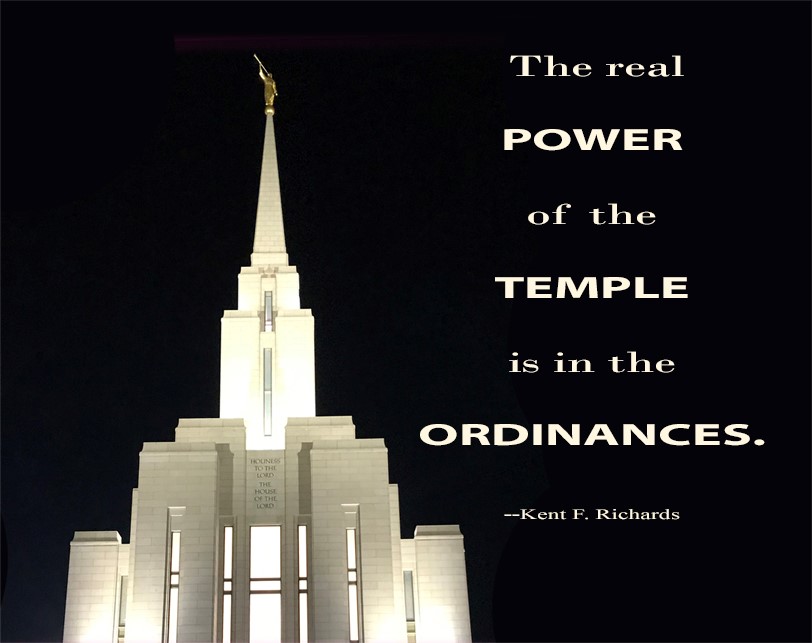

Come, Follow Me is a resource offered by The Church of Jesus Christ of Latter-day Saints. It is designed to be used in the home to support personal and family scripture study to build faith in Heavenly Father and His plan of salvation and in the Savior Jesus Christ and His Atonement. Come, Follow Me is self-contained and adequate, when used properly. Products and materials designed to supplement this resource, though they may be helpful in some instances, are not necessary for a successful home study program.

God gives power to those He calls to do His work.
From Come, Follow Me:
Today we know Moses as a great prophet and leader. But Moses did not see himself that way when the Lord first called him. “Who am I,” Moses wondered, “that I should go unto Pharaoh?” (Exodus 3:11). The Lord, however, knew who Moses really was—and who he could become. As you read Exodus 3–4, note how the Lord assured Moses and responded to his concerns. What do you find in these chapters that might inspire you when you feel inadequate? How does the Lord bless His servants with increased power to do His will?
“... priesthood ordinances and covenants provide access to the fulness of the blessings promised to us by God, which are made possible by the Savior’s Atonement. They arm sons and daughters of God with power, God’s power, and provide us with the opportunity to receive eternal life—to return to God’s presence and live with Him in His eternal family." (Do We Know What We Have? Carole M. Stephens)

Elder Dale G. Renlund stated that “Through our covenants and ordinances, we have access to the power of godliness in our lives--no matter our circumstances. That power of godliness comes because we’ve entered into a covenant that’s been part of an ordinance. And as we keep that covenant, then the power of godliness can be in our lives...Our ability to access the power of godliness depends on us keeping the covenants we’ve made with Him.” (How We Can Access the Power of the Temple during COVID-19)

Watch the video above highlighting how holding a temple recommend can give you strength to keep your temple covenants. Discuss as a family how you receive power from the temple to face the challenges of life. Look over the Temple Recommend Interview Questions which are made public so members of all ages can better understand the requirements for temple worship and prepare to enter the temple.
Set goals as a family to make temple and family history more a part of your lives.
Who is Jehovah?
From Come, Follow Me:
Jehovah is one of the names of Jesus Christ and refers to the premortal Savior. The Joseph Smith Translation clarifies that the prophets Abraham, Isaac, and Jacob knew the Lord by this name (see Exodus 6:3, footnote c). Usually, when the phrase “the Lord” appears in the Old Testament, it refers to Jehovah. In Exodus 3:13–15, the title “I AM” is also a reference to Jehovah (see also Doctrine and Covenants 38:1; 39:1).

"Do you ever think about your name? Where it came from? What people think when they hear it? ... Names are always important, and names have meaning. In The Church of Jesus Christ of Latter-day Saints, naming is a priesthood ordinance, and it comes with a blessing. It is significant that we are known by the name our parents choose for us 'on the records of the Church' and throughout our mortal lives. This given name has importance in all the priesthood ordinances, including the endowment and the sealing temple ordinances." (Janette C. Hales Beckham, Your Good Name, CES Fireside Address, September 3, 1995)


"Discuss with your family the meaning of each of their names if you know it. Discuss with them also why you gave them their names. Tell a story about the time each child was given a name and a blessing. You might keep secret the name of the child you are talking about and let the children guess who the child is. If you have a picture of each child when he was very young, show the picture after telling the story. A child loves to hear about what happened to him when he was a baby." This lesson also has an adaptation, including a story, for younger children you may want to check out. (Lesson Twenty-eight: A Name and a Blessing, Family Home Evening Resource Manual)


Where in the world does your name come from? How many people share your names? See what you can discover for each family member at All About Me. Check out the blog article What Does My Name Mean? Also watch What’s in a Name by Michael N. Hendersen to learn more about the value of your name.


Discover the origin and meaning of your last name at Surname Search by FamilySearch. Before you search, see if you or other family members can guess the meaning. Enter the last names of some of your ancestors to also learn about their last names. Look at your pedigree chart if you need help finding other names. (If you need help finding your pedigree chart, The Family History Guide Project 1: Family Tree can help you.) For more information, read What's in a Surname and check out some blogs about surnames in specific countries:
From Come, Follow Me:
Several women played critical roles in God’s plan to raise up a deliverer for the Israelites. As a family, you could read about the midwives Shiphrah and Puah (Exodus 1:15–20); Moses’s mother, Jochebed, and his sister, Miriam (Exodus 2:2–9; Numbers 26:59); Pharaoh’s daughter (Exodus 2:5–6, 10); and Moses’s wife Zipporah (Exodus 2:16–21). How did these women further God’s plan? How do their experiences remind us of Jesus Christ’s mission? You could also gather pictures of female relatives and ancestors and share stories about them. How have we been blessed by righteous women?

Learn about some of the Extraordinary Women in Your Family Tree. Go to Women of Faith and log in to your FamilySearch account. Read about the women in your family tree and discover how these women showed leadership and dedication in their lives. Share these stories with your family.

"Your family can gain strength as you learn and share the inspiring stories of the women that came before you" as you join in this activity, The Women in My Family, from FamilySearch.org.


Read through the following articles and identify one or more areas in which you can increase your knowledge and skill level for family history research. Implement this new knowledge or skill into your family history work this week.

Discover Free eBooks - Some of your ancestors may be written about in free online books that you can browse or download. In the Family History Guide, check out Surname eBooks in the FamilySearch menu. It has links to thousands of free eBooks from FamilySearch, Hathitrust.org, and the Internet Archive.